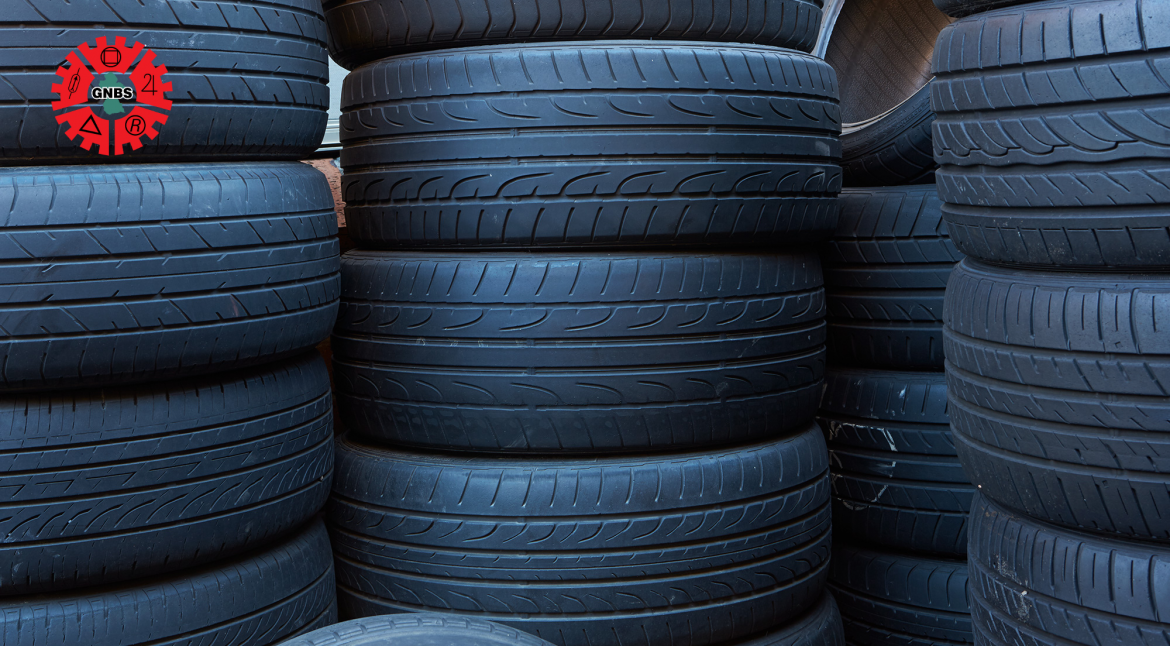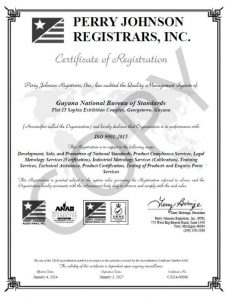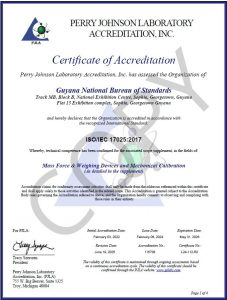One of key components of a vehicle are its tyres. As the only link between the vehicle and the road, tyres essentially support the weight of the vehicle. However, the right tyres also provide grip for braking and acceleration, maintain steering and directional control and act as shock absorbers for vibrations from the road. As such, good tyres are essential in maintaining safe and accident-free roads.
Stipulated within the Guyana Standard Specification for pneumatic passenger car tyres, GYS 67:2017 (Second Edition) which was developed by the Guyana National Bureau of Standards (GNBS), are requirements for the importation of new and used tyres. The GNBS monitors this commodity under its Product Compliance Programme, in accordance with the standard to ensure quality, road-worthy tyres are available to consumers.
According to the Standard, new tyres should not be more than two years old from the date of manufacture at the time of importation into Guyana and tyres that are six years or older should not be sold or offered for sale in Guyana.
Following the reversal of the ban on used tyres in October 2020, the GNBS recommenced the monitoring of used tyres. For used tyres, the required thread depth must be at least four millimetres (4 mm) and must not exceed six years from the date of manufacture.
In addition, Inspectors also look for tyre damages including exposed cords, tread separation, evidence of belt damage, ply separation, flex break or casing break-up, loose cords on inner ply, blemished or tyres showing studs were used. A used tyre can also be deemed unusable if there are nail holes or other injuries greater than 6mm in diameter and/or number more than two per tyre. Though this is a laborious task, tyres are individually inspected for defects and those which do not comply with the requirements are destroyed.
Inspectors of the Bureau conduct examinations at ports of entry, bonds and outlets, where tyres are checked for labelling, quality and storage requirements.
For storage, the Standard specifies that the tyres must be stored vertically, horizontally or plaited to avoid deformation; and in a building to protect them from humidity, light, or extreme temperatures. Tyres must be stored away from oils and other chemicals, which can speed up deterioration.
Importers and dealers of both new and used tyres are required to register with the GNBS annually to import and sell on the local market. The GNBS strongly encourages these stakeholders to acquire a copy of the National Standard so they can appropriately advise their suppliers on the requirements to minimise rejects at the time of examination in Guyana.
Although the GNBS spares no effort to ensure that all tyres sold on the local market reach the required Standard, importers, dealers and consumers must be cognizant of their role in ensuring quality tyres are used on our roadways.
As mentioned before, lives can be lost if tyres are compromised.
For further information, kindly contact the GNBS on telephone numbers: 219-0064/65/66 or send us a message on Whatsapp 692-4627 (GNBS).






